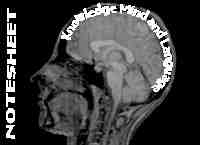
If a phenomenal experience eg a pain is identified with the activity of a particular piece of hardware eg the firing of c-fibres it is difficult to see how the same kind of expedience may be had by creatures lacking the same hardware.
Machine Functionalism identifies phenomenal experience eg the feeling of pain not with the firing of c-fibres but with the calculation that in the case of my neurophysiology is carried out by the firing of a particular bunch of c-fibres. If in another body that same calculation occurs but is carried out by different hardware, pain will be experienced. Machine functionalism says the calculating is the pain, and if the calculating is there, even if some other structure is carrying it out, so will be the pain.
I have a token £2 in my pocket. You have another token £2 in your pocket. The general £2 in the assertion that such and such a pie costs £2 doesn't refer to a token at all. It is saying something more general. 'Type' is used for the general thing as opposed to the token.
So using the type/token distinction we can say that the machine functionalist account of pain is this:
Where a program requires a particular calculation to be carried out, it is quite possible for that calculation to be carried out by any of a variety of different machinery.
Machine functionalism maintains that one and the same c-fibre activation has
So three levels of description of one physical system:
'And so there is after all a sense [if functionalism is right] in which "the mental" is distinct from 'the physical': though there are no nonphysical substances or stuffs, and every mental token is itself entirely physical, mental characterization is not physical characterization, and the property of being a pain is not simply the property of being such and such a neural firing.'
Lycan, Mind and Cognition, 2nd edition, p. 6.
Teleological functionalism invokes a separate sense of 'function' (from the 'function' in 'machine functionalism'). In the teleological sense, a subsystem has a function when it plays a role in the system it belongs to which has to be performed for that system to keep going.
Its defenders - eg Sober - think that if we do so we find defences for some of the objections to which machine functionalism is vulnerable.
It has often been thought appropriate to apply teleological analysis to the brain.
Machine functionalism says that there are three levels of description appropriate to evaluating the relative size on a face that has just been clocked:
Teleological functionalism says the three levels are:
Machine functionalism appears to imply that any system which carries out the same calculation which, when carried out in the brain, is identical with a phenomenal experience of a certain kind, must also have that phenomenal experience. This is often held to be implausible. By identifying phenomenal experience with a biological function, the implication is simply that any system which needs the same function performing will have the same phenomenal experience.
VP